Two figures stand out when talking about gender parity in Hong Kong academia. One is that among Hong Kong’s eight institutions funded by the University Grants Council (UGC), fewer than 10 per cent of the 110 positions at Dean level or above are held by women. The other is that although more than half of HKU students are female, fewer than 20 per cent of full professors are female.
The reason these figures stand out is not because they are unique, but because they are the few pieces of data we have about women in academia in Hong Kong.
The first figure came from a study by Dr Sarah Aiston, Honorary Associate Professor in the Faculty of Education, who has produced important research about women in academia in Hong Kong and internationally. Her work in part propelled HKU’s President, Professor Peter Mathieson, to sign the University up to HeForShe, the UN Women’s movement for gender equality and empowerment of women.
The second figure emerged following a task force set up by the Dean of Arts, Professor Derek Collins, in December, 2015 to look at gender inequality and related issues within his faculty. Arts was the first faculty to undertake such a study and its figures subsequently were found to echo across the University. Both the Arts Faculty and the University as a whole are now taking actions and planning further measures to address the problem.
All of this makes HKU not so much a leader in gender equity, but a leader in trying to redress the problem. Senior management, staff and students are all being brought on board to identify the solutions, as well as the problems themselves which have been laying under the radar. “Personally, I am impatient for change,” Professor Mathieson wrote in the HeForShe IMPACT 10x10x10 University Parity Report 2016. “I hope to see rapid progress on this issue.
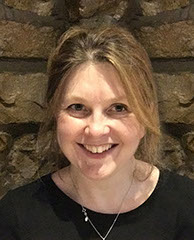
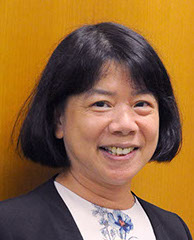
![]() There is a dangerous discourse that says because 50 per cent of students are women, it’s only a matter of time before they come through the pipeline. But the data shows that they are not going to get there without some interventions.
There is a dangerous discourse that says because 50 per cent of students are women, it’s only a matter of time before they come through the pipeline. But the data shows that they are not going to get there without some interventions. ![]()
Dr Sarah Aiston
![]() A case could be made that more diverse leadership makes you more representative because the chances are greater that decision-making will work for the whole institution, not just a group or category of employees or students.
A case could be made that more diverse leadership makes you more representative because the chances are greater that decision-making will work for the whole institution, not just a group or category of employees or students. ![]()
Professor Terry Kit-fong Au
The nature of the problem
The challenge in defining gender imbalance has been firstly about data. Unlike places like the UK, Hong Kong does not keep detailed information about women in academia. Dr Aiston has produced the most thorough information to date by digging into the details of each UGC institution, conducting interviews with their senior leaders, surveying women academics in Hong Kong in detail, and comparing the situation of women academics across five countries.
Among her findings was the fact that women held only eight of the 110 top-tier positions in Hong Kong universities as of 2014. “I also looked at the data longitudinally since the 1990s and there has been very little shift. Women are not progressing to senior ranks,” she said.
“There is a dangerous discourse that says because 50 per cent of students are women, it’s only a matter of time before they come through the pipeline. But the data shows that they are not going to get there without some interventions.”
Professor Terry Kit-fong Au has made gender equality a priority since she became Vice-President and Pro-Vice-Chancellor (Academic Staffing and Resources) early last year. The statistics speak to the need for change. “Women hold a little under 40 per cent of assistant professorships, a little under 30 per cent of associate professorships and a little under 20 per cent of full professorships. So you see this leaky pipeline feeding into the University. We have about half-and-half gender parity at the student level, but along the way we just keep losing women,” she said.
Pinpointing the causes is not as easy as some have assumed. The conventional wisdom has been that women are held back by family obligations, but Dr Aiston’s research shows this is not necessarily the case.
She did a comparative study involving academics in Hong Kong, Japan, Finland, Germany and the US and found that overall, women academics published less than men, but the situation was worse in Asia. She then looked closely at how women academics spent their time and found they had more teaching, administration and other duties that detracted from research time. Moreover, across the board, women with children and family responsibilities were not significantly less productive than women without. Nor was the imbalance confined to STEM – science, technology, engineering and mathematics; it was also present in the humanities and social sciences.
The findings, published in 2015, caused a ripple throughout the academic world.
“This piece of research attracted a lot of attention on social media and was one of Routledge’s most read articles in 2015 [Routledge published her findings],” Dr Aiston said. “People were saying, ‘oh my god, it’s not just about babies and the school run’. There are also systemic practices and structural problems.”
Unconscious bias was also a problem, as she discovered in her Hong Kong research. Whereas women academics surveyed tended to cite numerous barriers to advancement, such as lack of mentors, lack of development opportunities and the gender stereotype that men were leaders, the senior university managers that she interviewed tended to talk first about family obligations. Some even said that women wanted or were expected to spend more time at home.
“There was also this belief in the concept of a meritocracy, which assumes the system is unbiased and the best people for the job get chosen. This is another dangerous discourse. One president said gender was not a factor in promotion, which shows a complete lack of understanding of unconscious bias,” Dr Aiston said. Other research has shown that when presented with identical CVs, but given different genders, both men and women are more likely to hire the male candidate.
Taking action
Given Dr Aiston’s findings and issues raised on campus by women academics, the University on April 10, 2015, became the first university in the world to launch the United Nations’ HeForShe initiative on campus and pledged to improve gender equality (see panel). “This is not about women or men, it is about crafting a shared vision of human progress for all – about creating a solidarity movement between women and men for the achievement of gender equality,” the University said in a statement at the time. Since then, actions have snowballed, initiated from the centre as well as individual faculties, staff and students.
Arts was the first faculty to look at its own performance. Its Gender Task Force found that over at least the past two decades, the ratio of women receiving full professorships was virtually unchanged at less than 20 per cent. This affected women’s prospects of having retirement extended beyond the age of 60 and meant the Faculty was losing women at a faster rate than men at each level in the hierarchy. “There are stunning inequalities and a glass ceiling which have to do with hiring, promotion and tenure,” said Professor Gina Marchetti, who led the task force.
The task force recommended a number of actions on gender equality and diversity in regards to employment issues, sexual harassment, leadership and professional development, research, curriculum and academic freedom; these were all accepted at a forum in June, 2016. The Dean also required with immediate effect that the composition of several key committees be changed to have more women and be more diverse, and started to oversee every hire to ensure there were sufficient female candidates.
These achievements inspired Professor Au, who has been working with the Arts task force and other groups across the University to consider how the recommendations can be scaled up to university level and what additional measures are needed. “If we can have more family-friendly policies, that may help women to have a more level playing field,” she said.
The initial output from this work is detailed in the discussion paper ‘Gender Parity Measures for HKU’ endorsed by senior management for wider consultation in late 2016, which outlines existing, planned and recommended actions. At an open forum in January, academic staff helped prioritise the recommendations.
So far, the University has increased the proportion of women at dean level or above from nine per cent to more than 20 per cent. Female representation has been mandated on all appointment and promotion panels. Maternity and paternity leave conditions have been improved, and breastfeeding facilities provided on campus.
Awareness activities have also been launched such as the ‘Lunch and Learn’ seminar series for women academics, ‘Ideathons‘ in support of HeForShe to engage students in becoming agents of change, and the ‘3VPs and You in Conversation’ series involving senior leaders from HKU, CUHK and HKUST visiting the three campuses together to talk about gender-related issues. A gender parity symposium will be held this year to brainstorm strategies with staff from HKU and other UGC-funded institutions, and there will be a TEDxHKUGirls conference on gender.
Funding has been earmarked for the Women‘s Studies Research Centre (WSRC), and HeForShe scholarships offered to female students from the world’s more economically-deprived nations. Starting in September, a new online sexual harassment course will be offered to all HKU students.
The ‘Gender Parity Measures for HKU’ discussion paper also included more than 20 recommendations for new policies and practices, such as broadening the eligibility for tenure clock extension, establishing clearer criteria for promotion and career development, enhancing parental leave, and exploring dual career programmes, to provide options for spouses when hiring academics married to academics. These were presented to staff at a forum in January. Some measures will require approval of the Senate and University Council.
“It’s a pretty long list of things to do but we have thought very hard on this and aimed to be reasonable,” Professor Au said. “We are not trying to reach for pie in the sky, but thinking about what will make a difference in recruiting good people and keeping them here.”
The pay-off
Therein lies the institutional incentive for gender parity: it is starting to be seen as a performance indicator. Dr Aiston pointed out that in 2016, one of the questions asked in the QS World ranking survey was whether both men and women were allowed to realise their full potential.
“Gender inequality is difficult the world over, but Hong Kong in particular is lagging behind by a few decades. It needs to do something – if not for social justice, then because it will become a performance indicator,” she said.
Professor Au said she had also been looking for practical evidence to show why it benefited institutions to have more balanced leadership. She cited a study by PricewaterhouseCoopers, which found top corporations scoring highly on gender parity significantly outperformed their peers in terms of earnings, and the fact that other leading universities are taking steps to address gender equality, such as Cambridge, Harvard and Oxford.
“We don’t want to just follow others,” she said. “But I think intuitively a case could be made that more diverse leadership makes you more representative because the chances are greater that decision-making will work for the whole institution, not just a group or category of employees or students. You have the benefit of more role models and come across as a more caring university.”
It is an example she hopes HKU and other universities can provide to the rest of Hong Kong.“We can build something that will be good for Hong Kong and serve as a model to demonstrate to other organisations that Hong Kong can be more gender-friendly and family-friendly,” she said.
HeForShe activities
HKU supports the UN Women’s HeForShe initiative by serving as an example to others. The University is a member of IMPACT 10x10x10, in which 10 heads of state, 10 global CEOs and 10 university presidents have pledged to formulate solutions to gender equality and empowerment of women.
HKU’s initiatives have included improving gender equity among staff, addressing sexual harassment, promoting gender research and studies, and encouraging student involvement. In August, 2016, it organised an ‘Ideathon’ on gender equality – the first ever in Asia – in which teams of students brainstormed ideas and proposed solutions that were voted on by their peers. The three best were posted as two-minute pitches on the HeForShe Twitter account for voting by a worldwide audience. The ‘Ideathon’ was facilitated by the Head of HeForShe at UN Women, Elizabeth Nyamayaro.
In addition, HKU’s President Professor Peter Mathieson was invited to UN Headquarters in September, 2016 to speak at the launch of the HeForShe IMPACT 10x10x10 University Parity Report and announce initiatives at HKU to promote gender equity and diversity that are described on these pages.
About 300 HKU members participated in the launch event of HeForShe in Loke Yew Hall on April 10, 2015.
HKU academics talking about promoting gender equity and diversity with senior leaders from HKU, CUHK and HKUST in the ‘3VPs and You in Conversation’ series.
HKU hosted the Asia-Pacific Women in Leadership (APWiL) Policy Roundtable on Gender Equity in April, 2016.
HKU academics talking about promoting gender equity and diversity with senior leaders from HKU, CUHK and HKUST in the ‘3VPs and You in Conversation’ series.
HKU is the first university globally to launch the HeForShe campaign on campus. (From right) Head of HeForShe Ms Elizabeth Nyamayaro, HKU President and Vice-Chancellor Professor Peter Mathieson, the then Hong Kong Equal Opportunities Commission Chairman Dr York Chow and University Grants Committee Secretary-General Dr Richard Armour in the launch event.
Professor Peter Mathieson speaking on HKU gender equity measures at the launch of the inaugural HeForShe IMPACT 10x10x10 University Parity Report. It was the first progress report since 10 global universities publicly announced bold commitments to achieve gender parity by 2020.

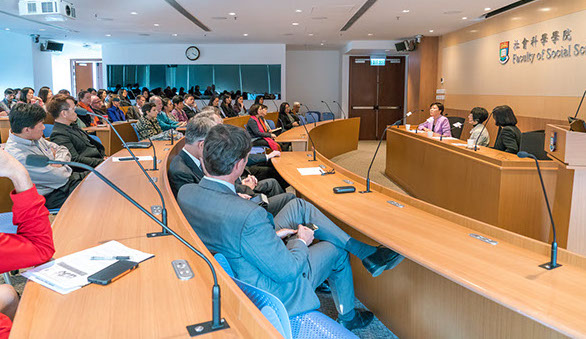
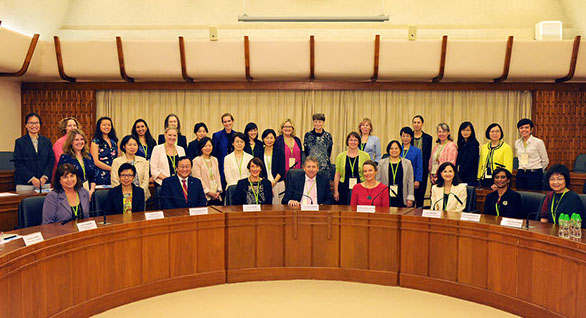
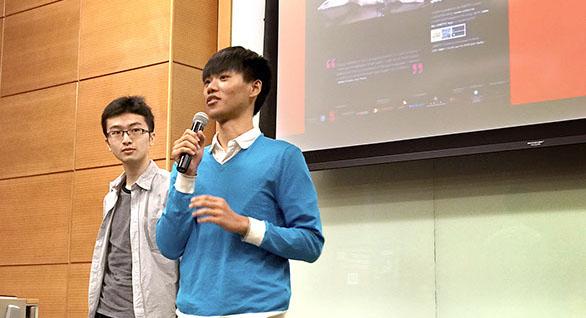
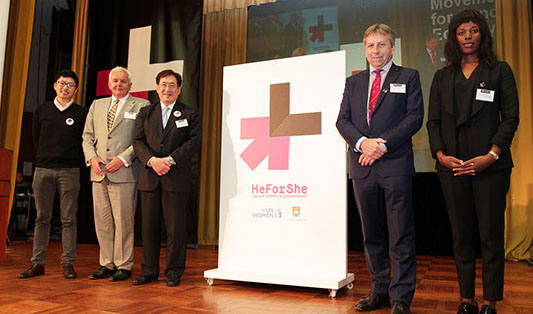


Gender On The Table
Like many universities around the world, HKU has a serious gender imbalance in its senior ranks. Its scholars and administrators are determined to address the problem.
Next


